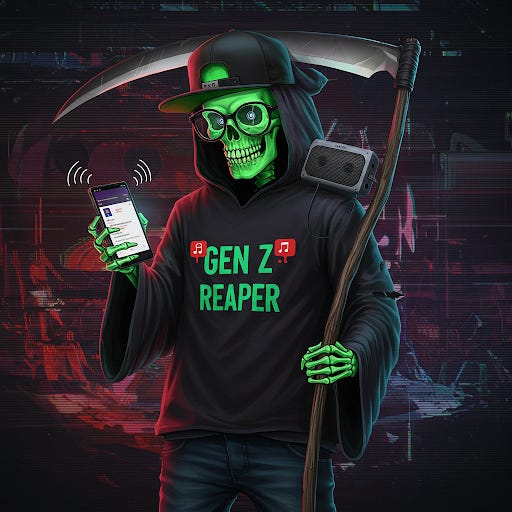#Bristol - Navigating the Existential Exit: A Grown-Up's Guide to Not Being Here Anymore.
From Ketchup to Kingdom Come: Why "Passed" is the New "Dead."
Ah, yes, the great societal euphemism machine strikes again, following the Pope’s death. It seems we've decided that the stark reality of our finite existence is just a tad too… real. So, we've softened the edges, like rounding the corners of a particularly pointy truth. Let's dive into this linguistic wonderland of avoidance, shall we?
Here are a few ways we use "passed" and "passing" that have absolutely nothing to do with shuffling off this mortal coil:
Passed the salt: A crucial social manoeuvre at any dinner table. Failure to execute this properly can lead to awkward silences and a distinct lack of seasoning.
Passed the exam: A moment of triumph, often followed by a brief period of smugness and the immediate forgetting of 90% of the material.
Passed the torch: A symbolic gesture, often seen in cheesy montages, signifying the transfer of responsibility or a slightly dusty Olympic flame.
Passed the buck: A less noble act, involving the skilful deflection of blame onto an unsuspecting colleague.
Passed out: Usually involving excessive revelry and a temporary loss of consciousness, often in an inconvenient location.
Passed through customs: An often tedious but necessary step in international travel, involving the presentation of passports and the feigned innocence regarding undeclared souveniers.
Passed the point of no return: A dramatic phrase indicating a commitment to a course of action, often uttered right before things go spectacularly wrong.
Passed the time: An activity engaged in during moments of boredom, often involving scrolling endlessly through social media or staring blankly at a wall.
Passed legislation: A momentous occasion in the halls of power, sometimes leading to actual change, often leading to lengthy debates about the definition of "change."
Passed a kidney stone: An experience I'm told is less about gentle transition and more about acute agony. Definitely not comparable to "passing."
Passing notes in class: A clandestine activity, often involving poorly drawn doodles and whispered secrets, usually ending in detention.
Passing a driving test: The gateway to freedom (and traffic jams).
Passing a milestone: A marker of progress, be it personal or societal, often celebrated with cake.
Passing judgment: A human tendency, often performed with varying degrees of accuracy and empathy.
Passing gas: A biological reality, sometimes discreet, sometimes… not so much.
Passing fancy: A fleeting interest, like that time you were absolutely going to learn to play the ukulele.
Passing resemblance: A vague similarity, often used to politely suggest someone looks a little bit like a celebrity.
Passing comment: An offhand remark, often regretted later.
Passing phase: A temporary obsession, like that brief but intense love affair with collecting porcelain dolls.
Passing grade: Just enough to avoid failure, a testament to the art of strategic effort.
Passing shower: A brief burst of rain, often occurring just after you've decided to leave your umbrella at home.
Passing stranger: A face in the crowd, unlikely to be remembered.
Passing trend: Something that everyone is doing now but will be deeply embarrassed by in a few years.
It's quite the linguistic acrobatics we perform, isn't it? We use these perfectly ordinary words to tiptoe around the one certainty we all face. Perhaps it's a subconscious attempt to distance ourselves from the inevitable, to soften the blow of a profound and often painful reality, and instead, perhaps throw parties in celebration of a life that was?
But here's the thing, folks: our loved ones don't "pass the ketchup" out of existence. They die. It's a fundamental part of the human experience, a truth that, while sometimes difficult to confront, is no less real for being cloaked in gentler terms. While sensitivity and empathy are crucial when discussing loss, especially with children, there's a point where the euphemisms can feel… well, a little absurd.
As adults, surely we can handle the weight of the word "death." It's not a monster lurking under the bed; it's the natural conclusion of life. By sanitising our language too much, are we not also sanitising our understanding of grief, of loss, of the very preciousness of the time we do have?
Maybe it's time we matured beyond the overly cautious language, stop talking about death and dying as if we’re speaking to a five-year-old, and embraced the reality. Death is a part of life. So, let's talk about it like grown-ups. You know, how we used to, as in death, dead and dying. Or, maybe we’ve become simply just ashamed to?



